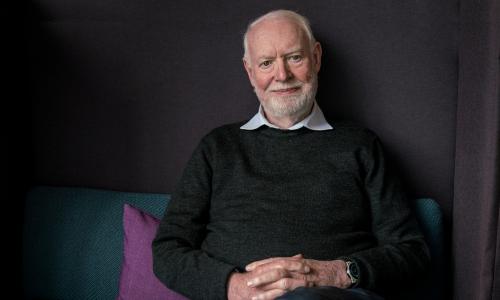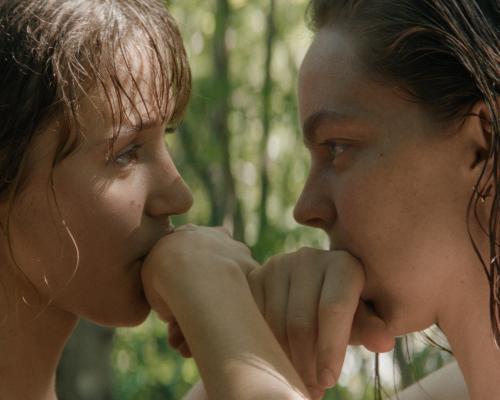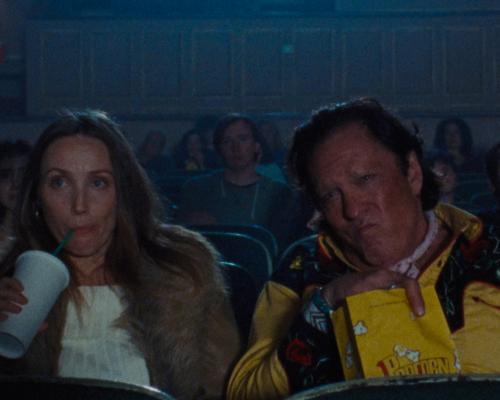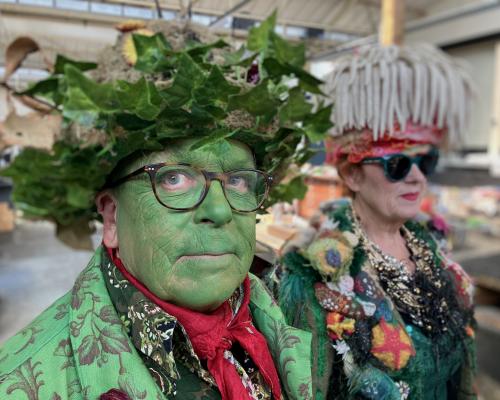
At last count, the film critic, writer and cinephile David Stratton had seen and critiqued at least 25,000 films, not counting those he watched more than once. His goal was to see one new film every day, a childhood habit that developed into a career spanning six decades that celebrated and advanced the Australian film industry.
Stratton, who has died aged 85, had an incomparable passion for celluloid storytelling. As a seven-year-old boy in England watching his childhood hero Chips Rafferty wrangling cattle in The Overlanders, Stratton had little idea that Australian films would transform his life. He left England in 1963 as a “10-pound Pom” intent on exploring Rafferty’s outback for himself, but, like the protagonist John Grant in Wake in Fright, one of Stratton’s favourite films, he found it menacing and dark.
Instead, he was drawn to the Sydney film festival and the prospect of seeing films for free as a volunteer usher. Three years later, in 1966, he became its director and remained so for 18 years. Much to his father’s disappointment, Stratton chose to make Australia his home and the support and promotion of the Australian film industry his life’s work.
Since Australia had no recognised film industry at the time, Stratton’s first task as festival director was to launch short film competitions and promote untapped talent. Entries were received from names now synonymous with some of the country’s best and most successful movies. By the 1970s, federal funding was in place, and with it came the rise of Australian cinema’s new wave. Stratton ensured that classics such as Picnic at Hanging Rock (he saw it “dozens of times”), Mad Max and Newsfront received international exposure, thus drawing the world’s spotlight to the unique qualities of Australian cinema and its stories.
In one memorable stunt at the opening night of the 1975 film Sunday Too Far Away, 40 sheep were brought in and a city street closed off so the film’s star, Jack Thompson, could give a shearing demonstration.
“[Stratton] was a warrior in the cause of finding an audience for Australian films, which was, and remains, difficult,” the writer and broadcaster Phillip Adams said.
A fan of French cinema since his teens, Stratton was also keen to introduce Australian audiences to the diversity of world cinema.
“I still vividly remember seeing Truffaut’s first feature, 400 Blows, for the first time and walking out of the cinema feeling I’d seen something extraordinary,” he said.
Programming a series of Soviet films for the festival in the late 1960s resulted in Stratton being put under surveillance by the Australian Security Intelligence Organisation (Asio), who photographed him outside the Soviet embassy in Canberra. When he became aware of it, Stratton declared it “a complete and staggering waste of time and money”. He had been there getting a visa to attend the Moscow film festival.
In bringing international films to Australia – and with the emerging local film industry gaining momentum – Stratton found his focus turned to overthrowing what he called the country’s “draconian censorship” laws of the 1960s.
“It was films of real stature and real importance that were being attacked by the philistines at the film censorship board at the time,” he said. “They were ignorant, stupid people.”
Stratton was most recognisable as the white-bearded, bespectacled and avuncular co-host of The Movie Show on SBS, which ran from 1986 to 2004, and then At The Movies for a further 10 years. The good-humoured repartee between the no-nonsense Stratton and his cheerful (and stylish) co-host Margaret Pomeranz as they sparred over their star ratings and favourite films won them a devoted audience and led the Guardian to label them “the head and heart of Australian film culture.”
Their star ratings were divisive, with fans declaring themselves either “a David” or “a Margaret”. One director not happy with Stratton’s review of his film, Romper Stomper, was Geoffrey Wright, who called him a “pompous windbag” and, two years later, flung a glass of wine over the critic.
David James Stratton was born on 10 September 1939 in Melksham, England, the oldest son of Wilfred and Kathleen Stratton. During the second world war, his parents were absent, his father posted overseas and his mother volunteering with the Red Cross. His grandmother became his primary carer, and every afternoon she would take David to the cinema to see a matinee. He left school in Salisbury at 16, spending his time with local film societies when not working in the family grocery business, Stratton Sons & Mead, established in 1830.
In the 2017 documentary of his life, Stratton became emotional talking about the “fractious relationship” he had with his father, who had groomed his son to take over the family business and could not understand his interest in films.
Stratton’s younger brother, Roger, said the relationship between David and his father was difficult in part “because my brother didn’t know him for the first five or six years of his life because when he came back from the war, he was a stranger”.
From 1984 to 2003, Stratton wrote reviews for the US entertainment magazine Variety, earning a reputation as their fastest critic. He had been reviewing films since he was a boy and continued to do this for every film he saw throughout his life, recording typed or handwritten details on cards filed in wooden drawers.
He was a member of the international jury at the Berlin, Montreal, Chicago and Venice film festivals and served twice as president of the international film critics jury at Cannes.
He was made a Member of the Order of Australia in 2015, and in 2001 a Commander of the Order of Arts and Letters, France’s highest cultural honour, for his services to cinema.
His 2008 autobiography, I Peed on Fellini, describes an unfortunate meeting with the famous Italian director after Stratton had drunk copious amounts of champagne. He wrote several books about his favourite movies, and in 1990 began teaching film history at the University of Sydney, where he received an honorary doctorate in 2006.
He was intensely private and lived in the Blue Mountains, west of Sydney, for many years with his wife, Susie Craig. No further details of his family are available.
• David Stratton, film critic, born 10 September 1939; died 2025.







